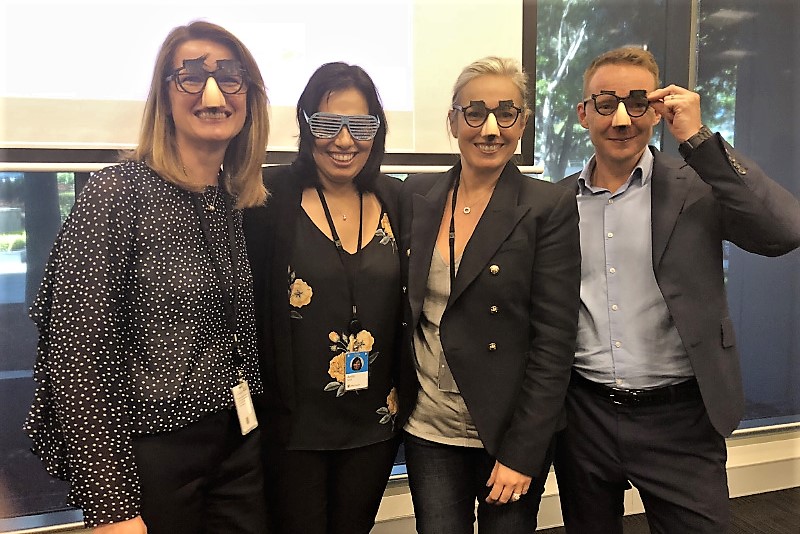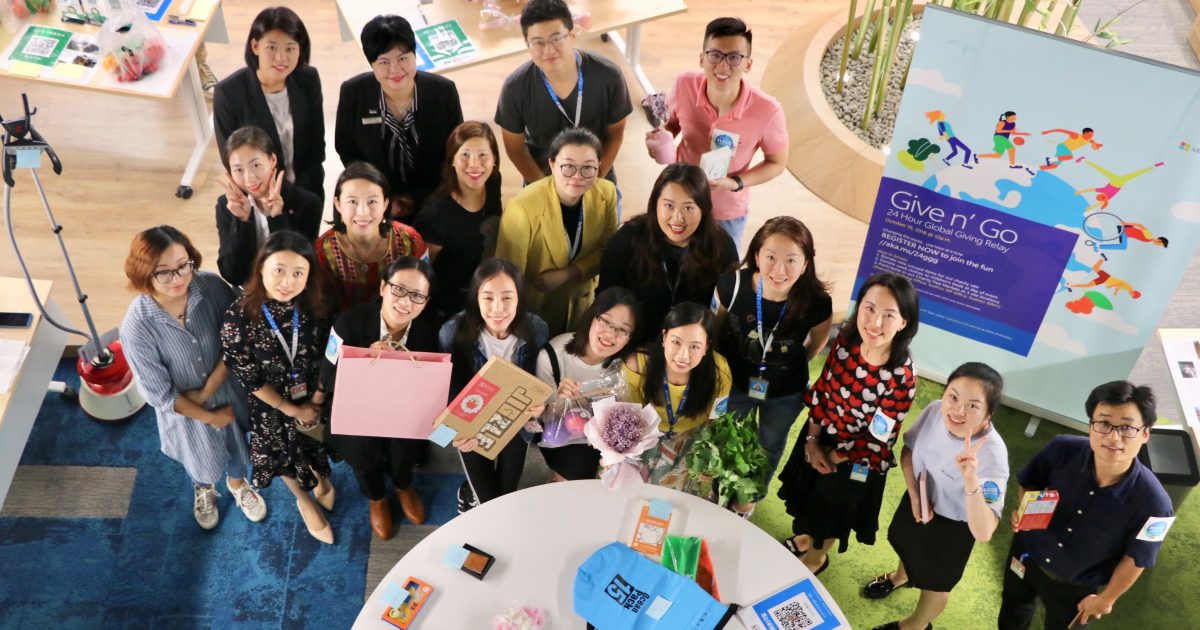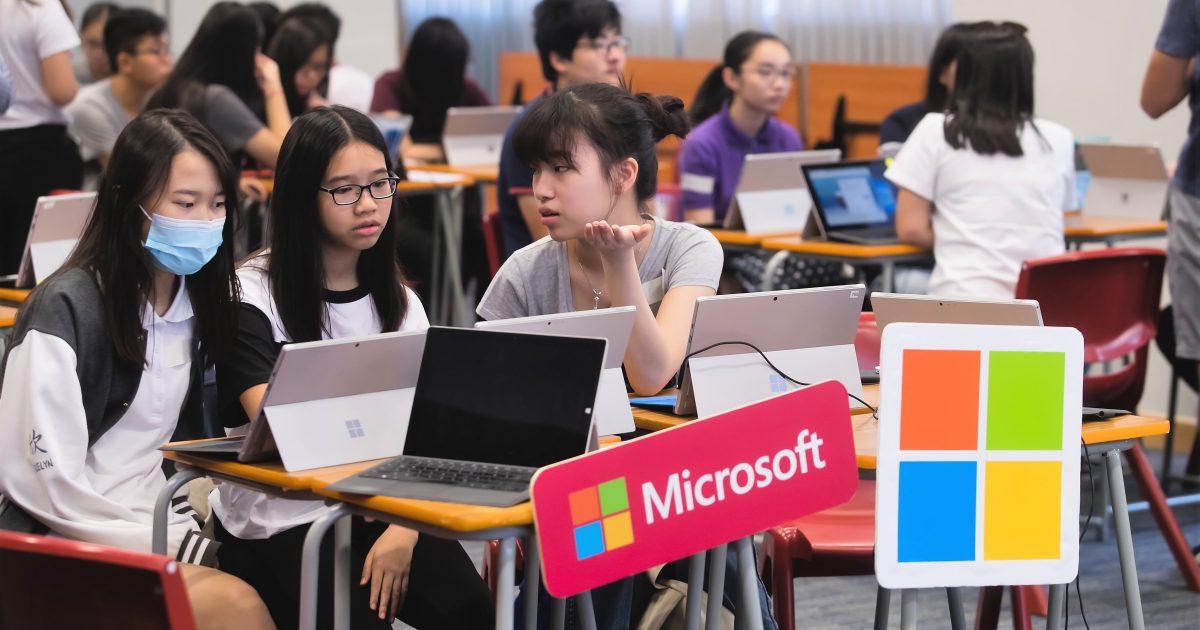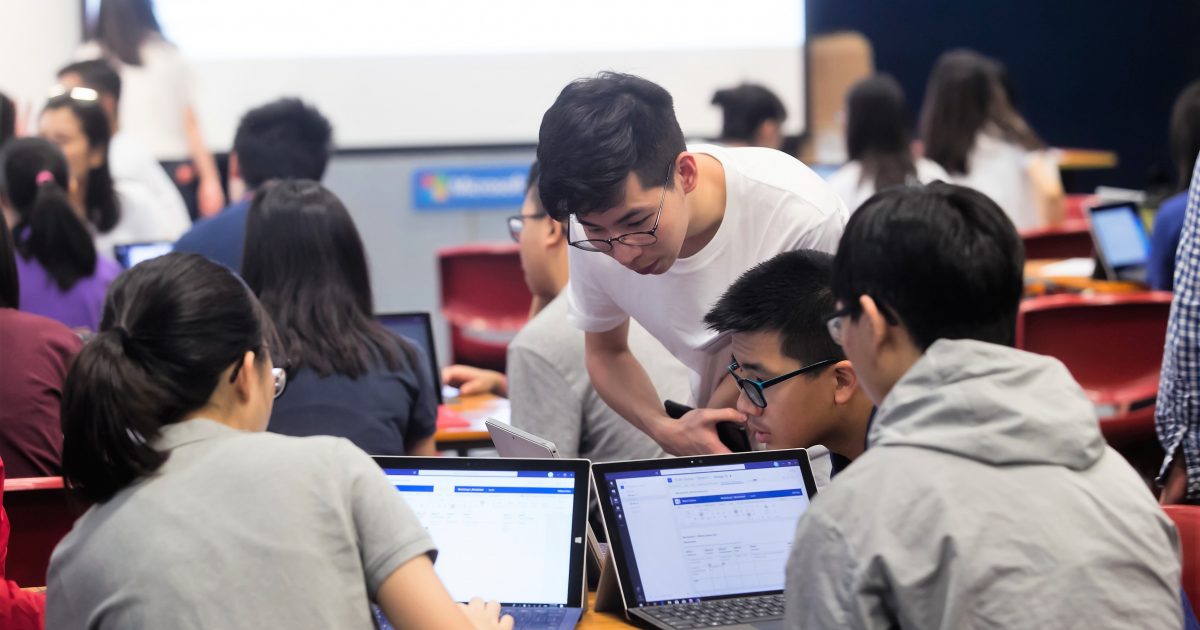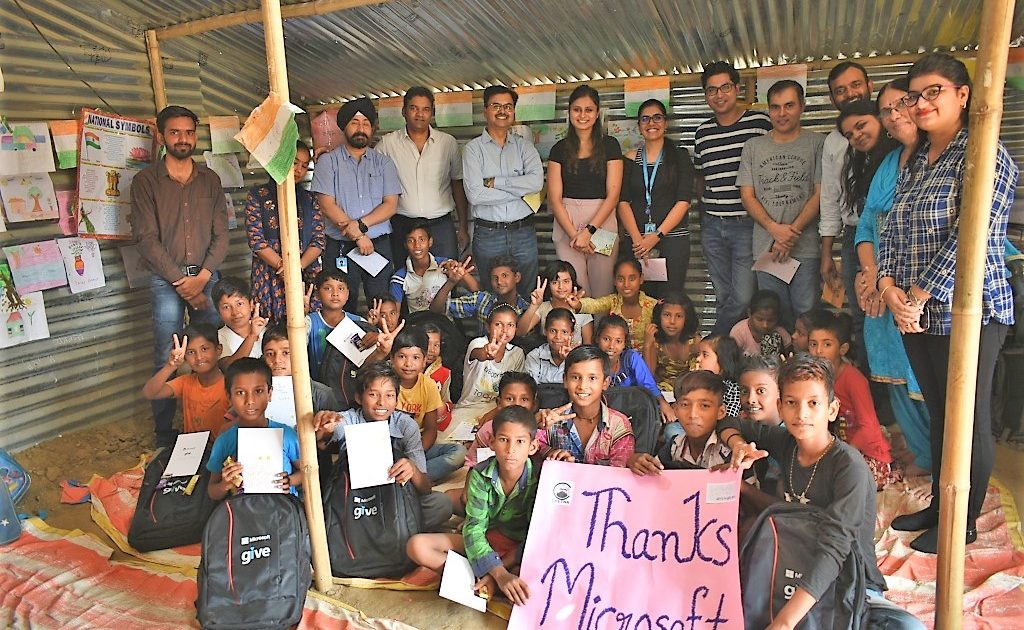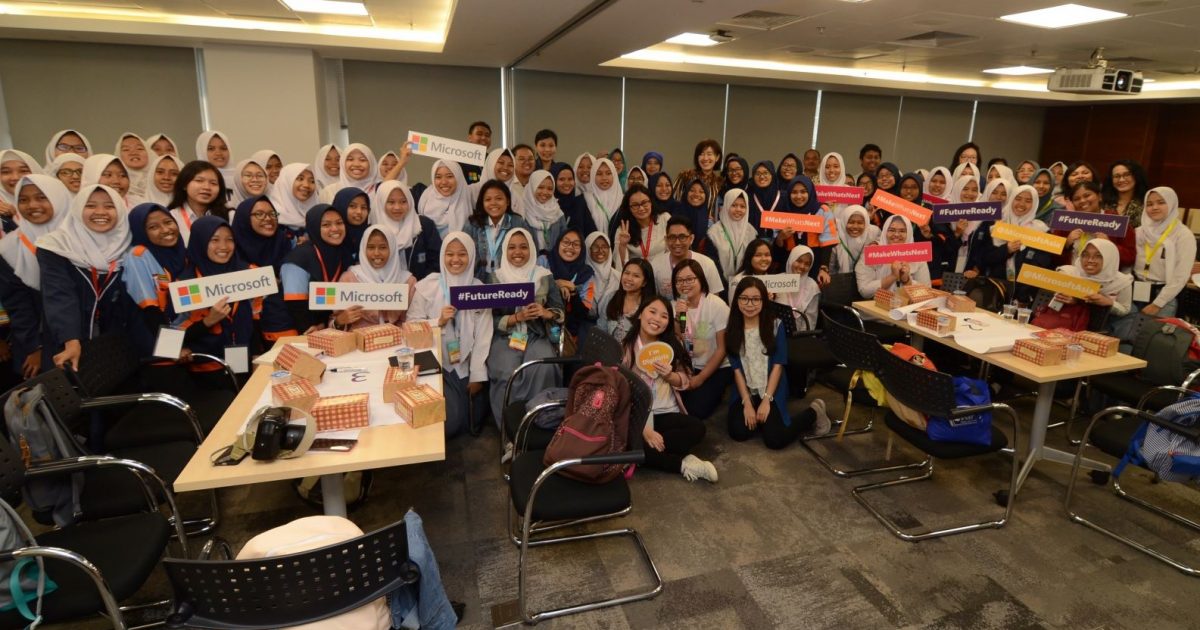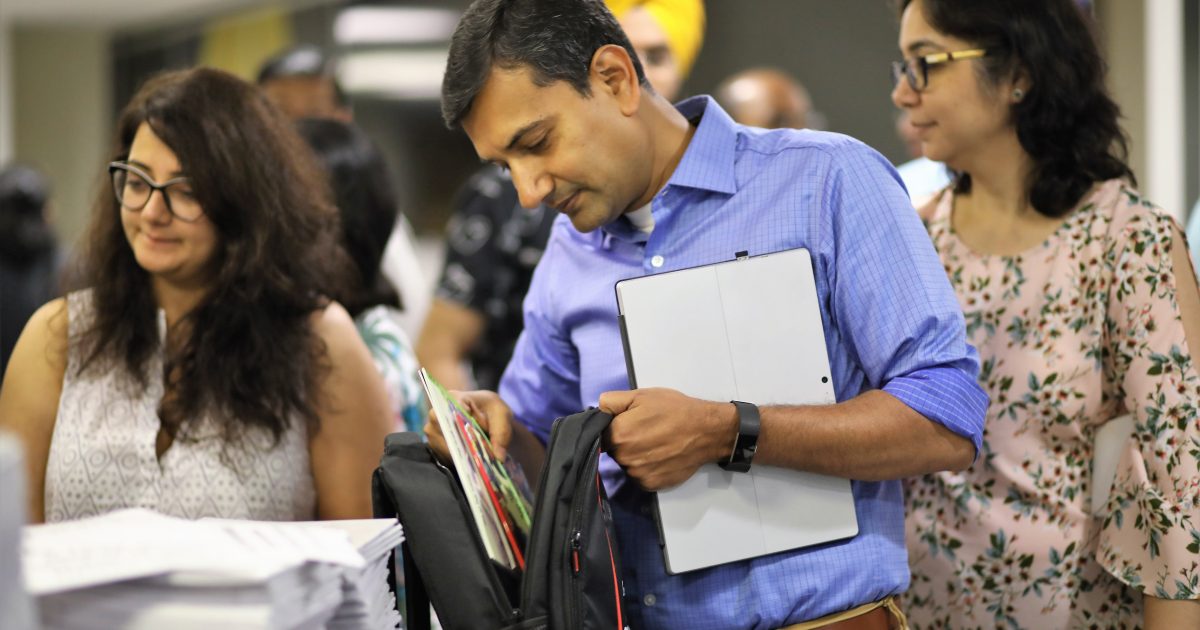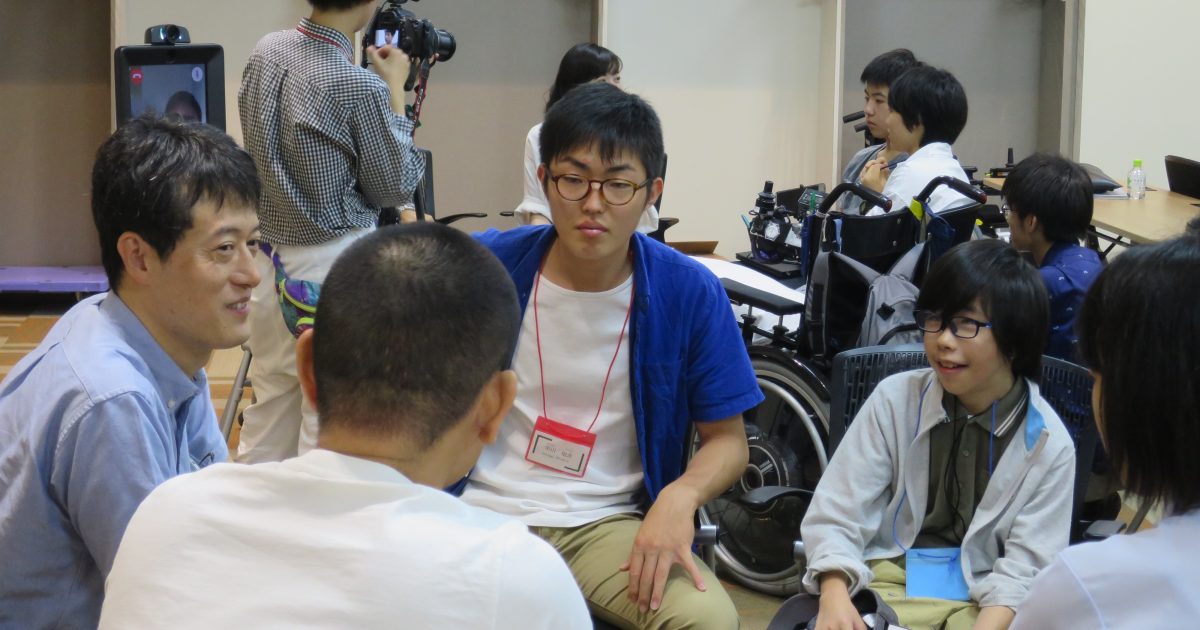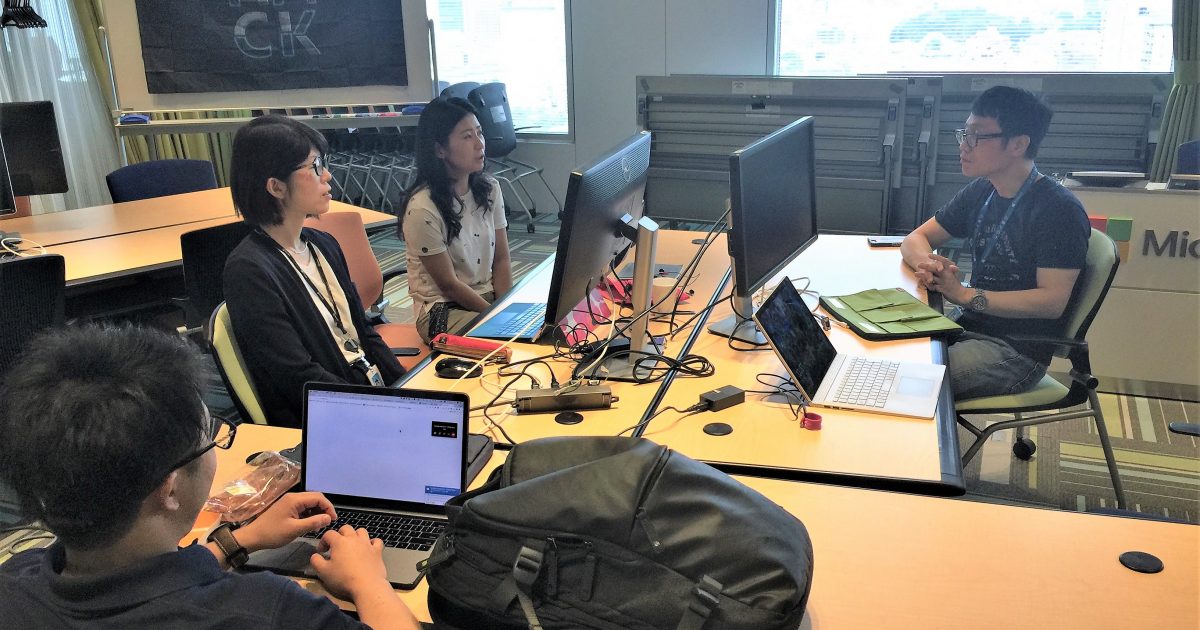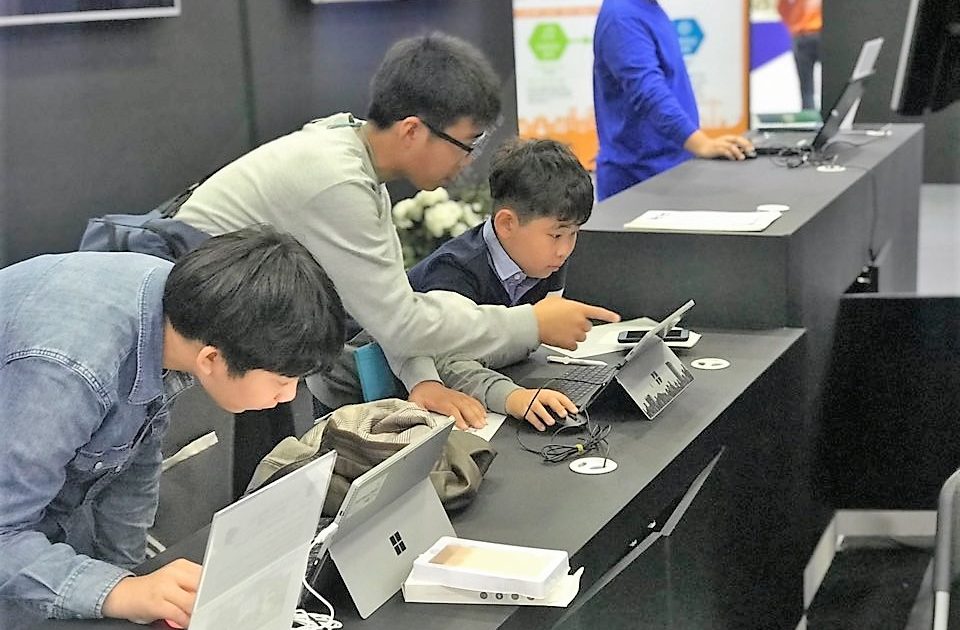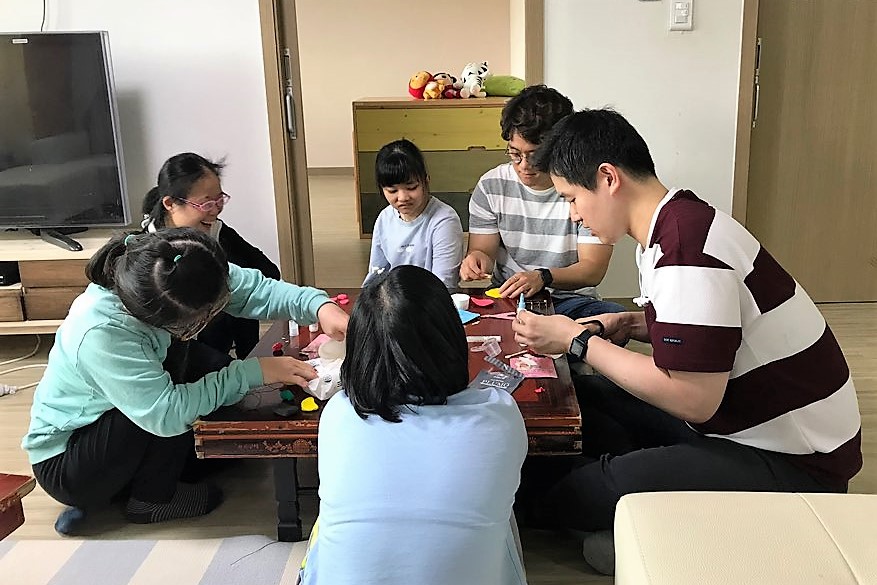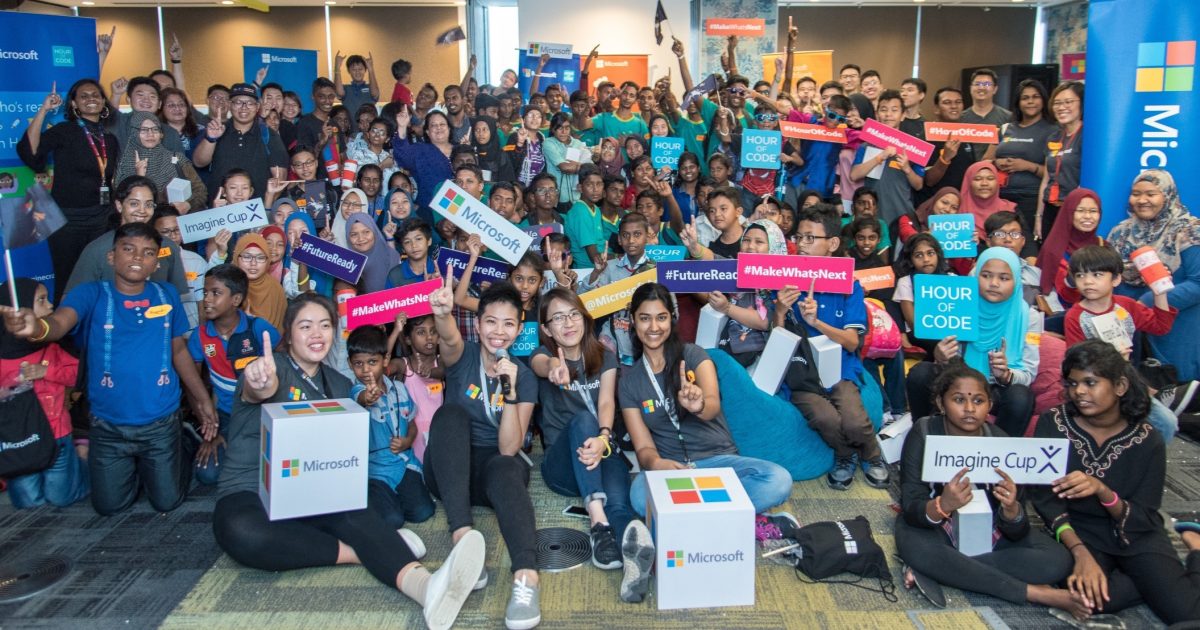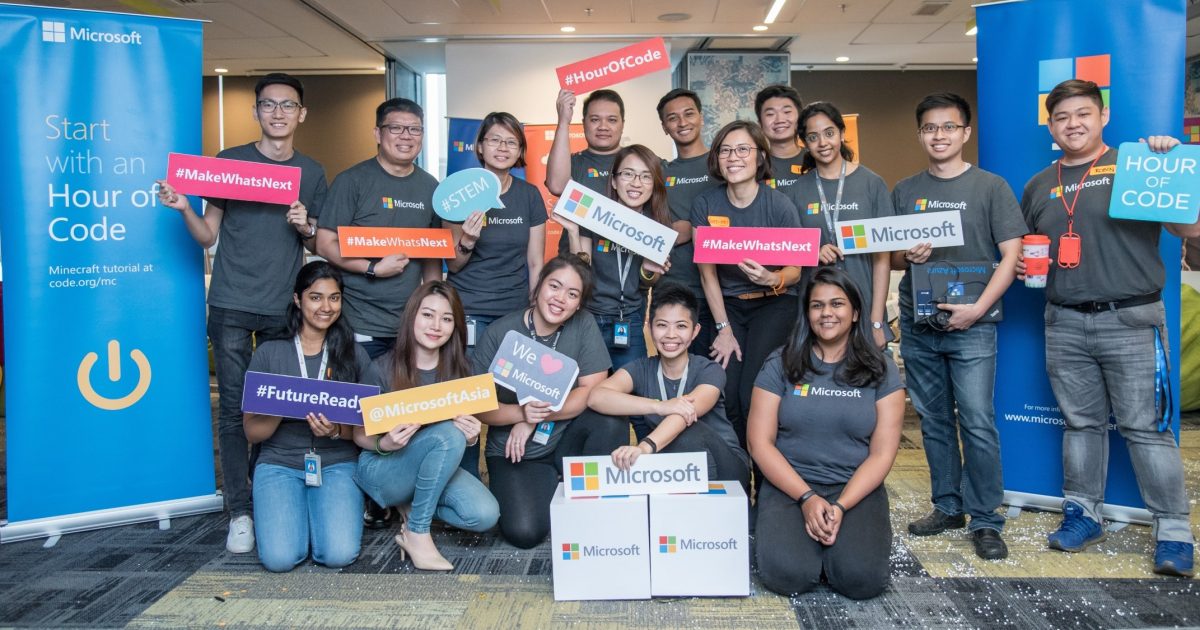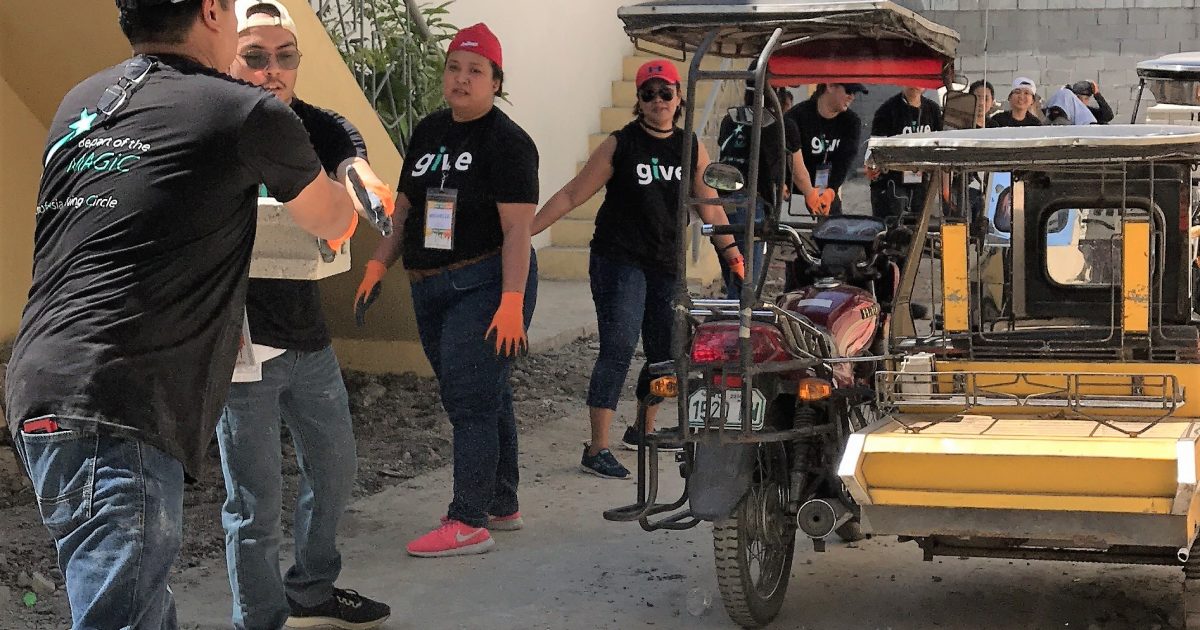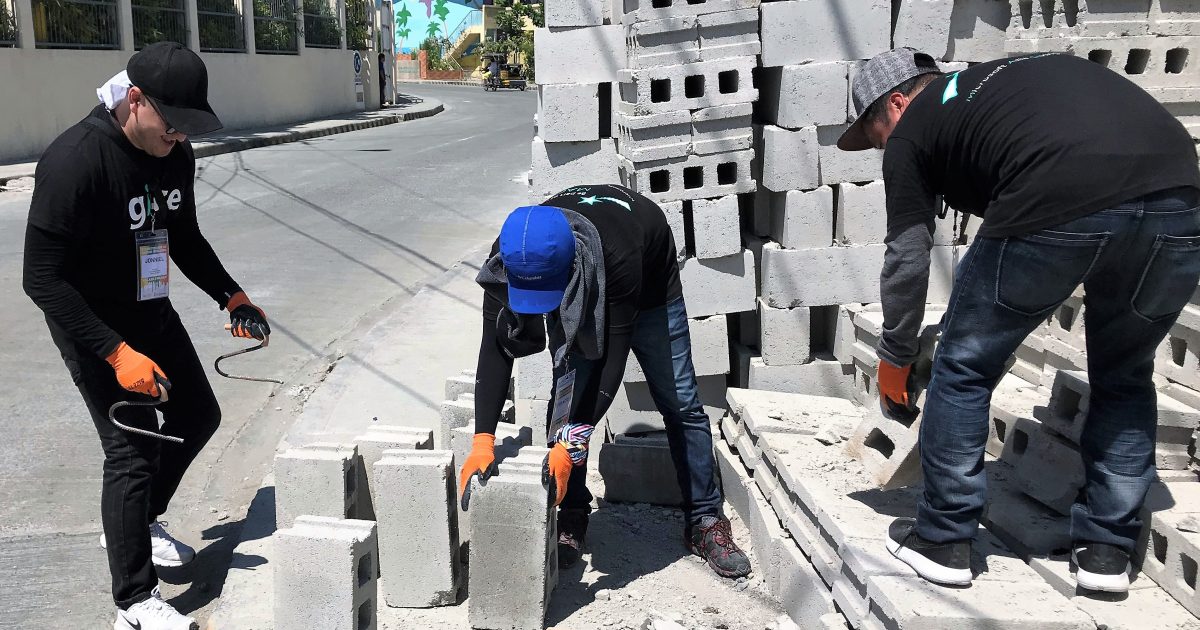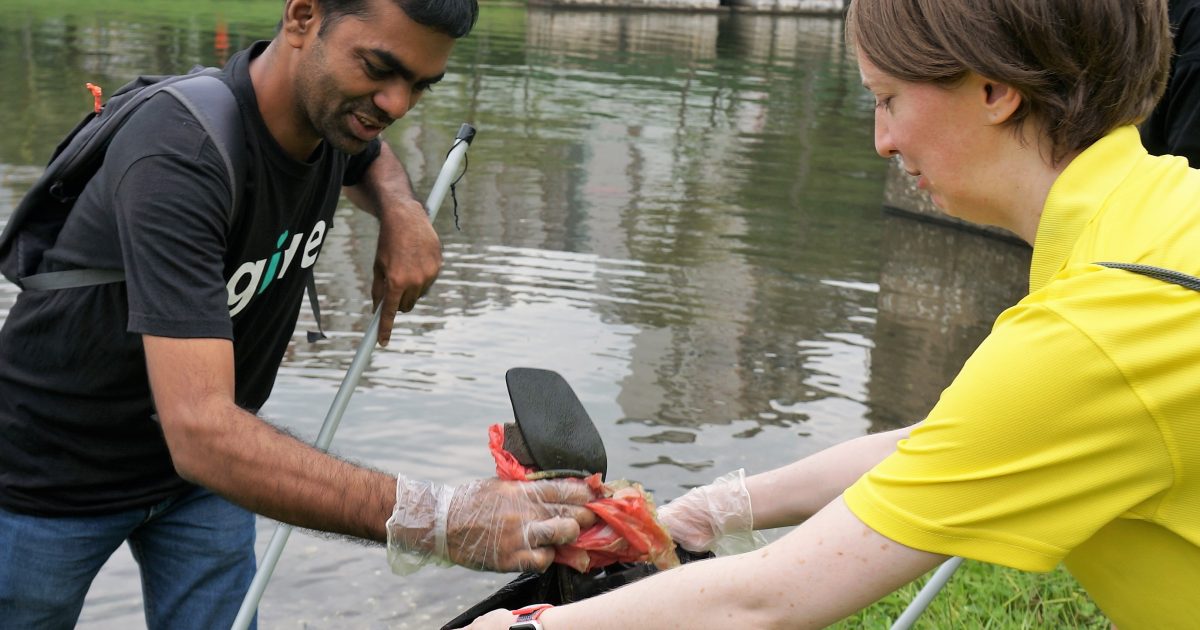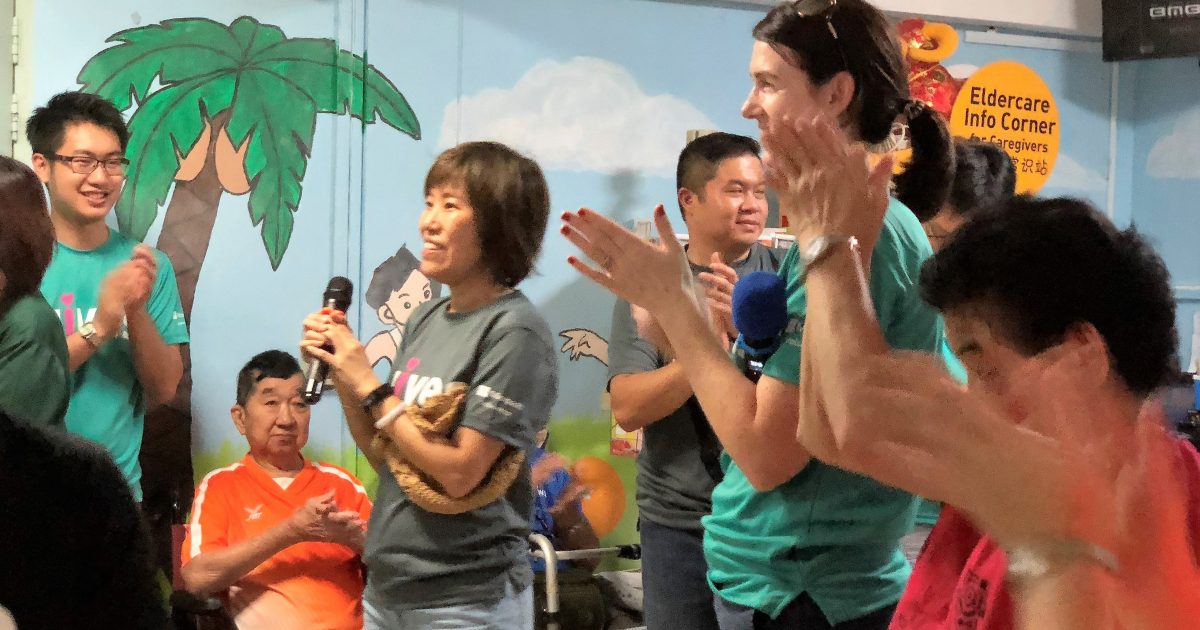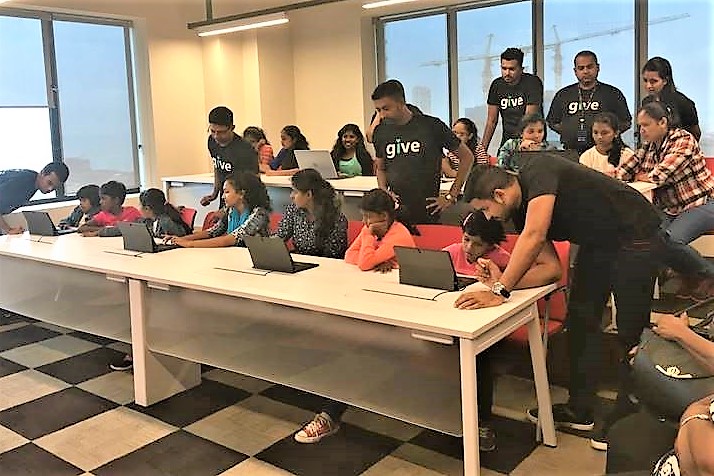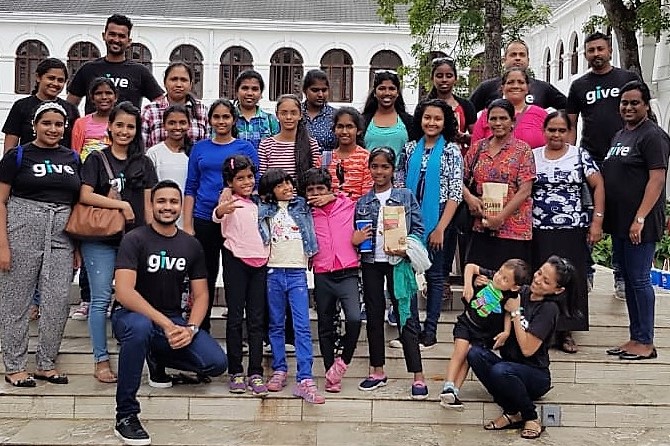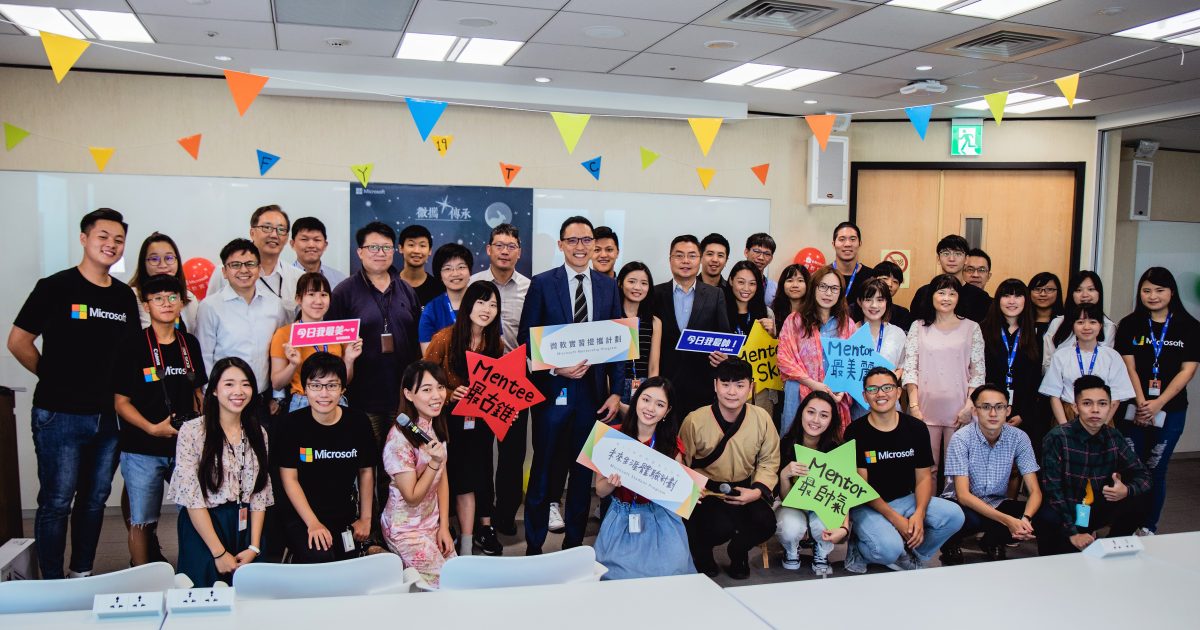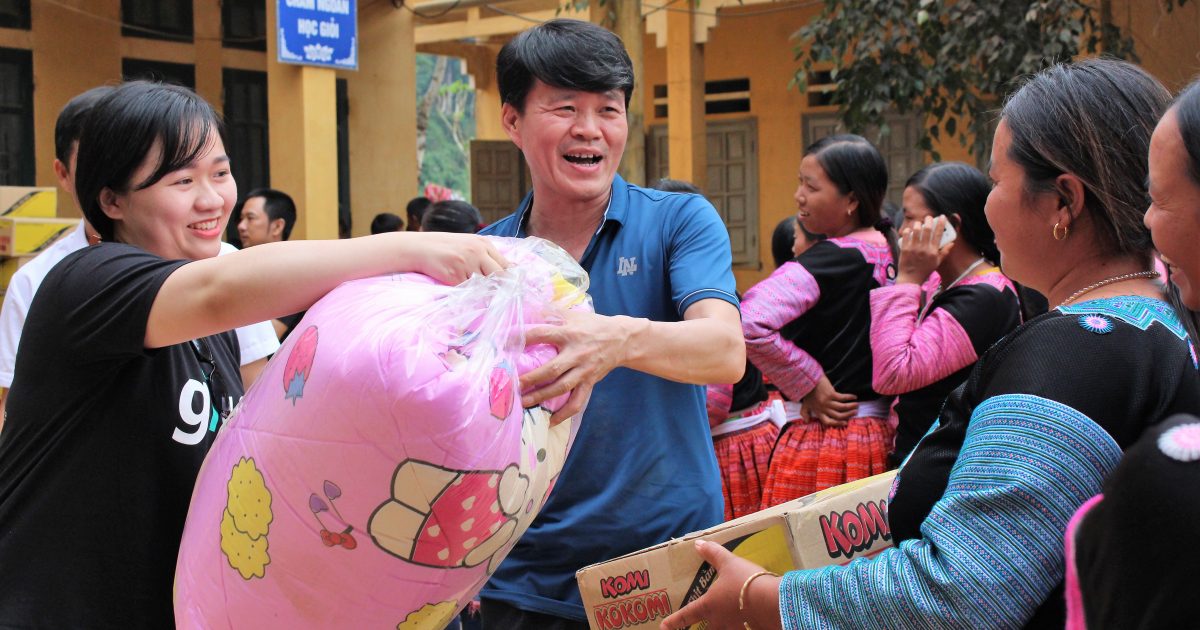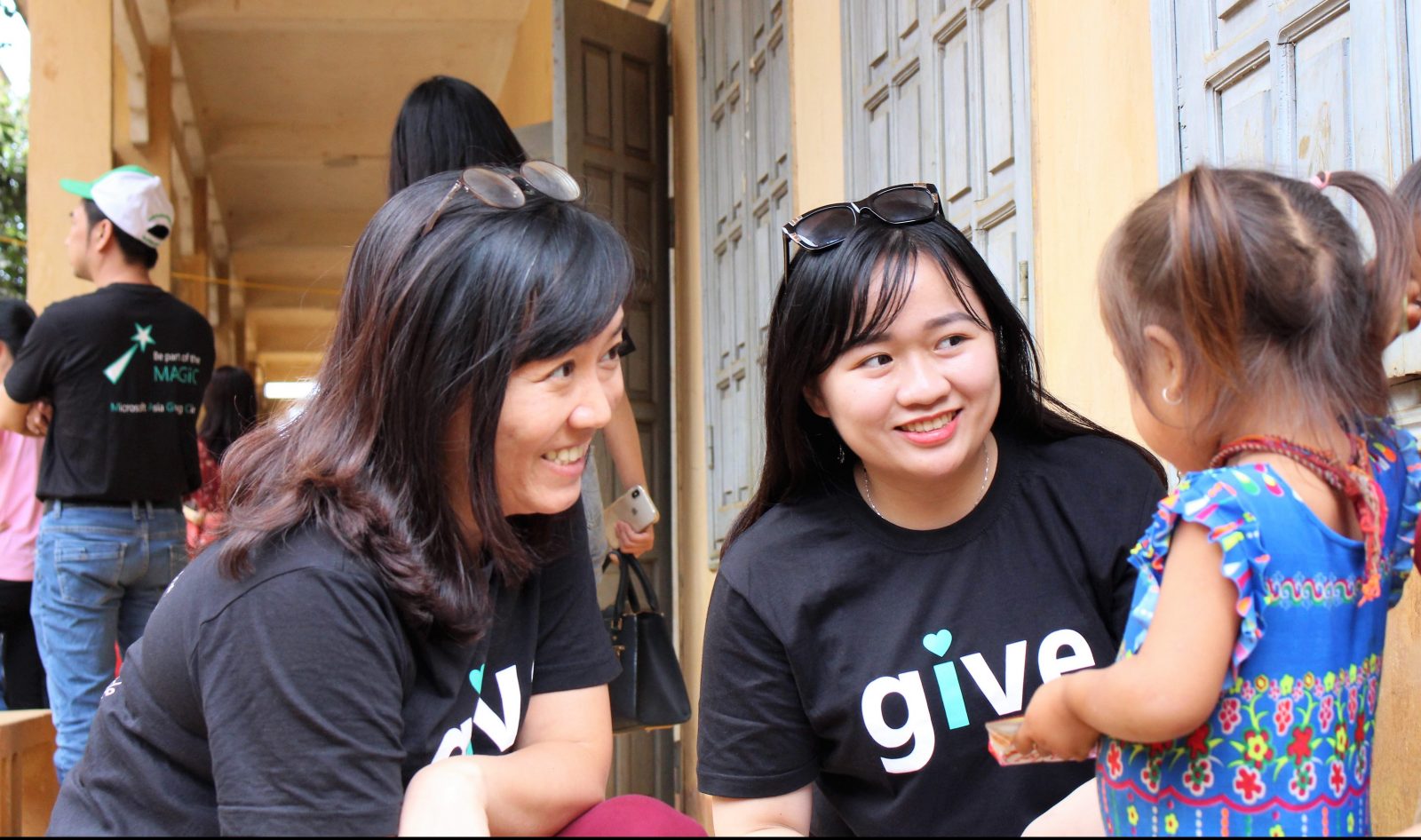
With skill and care, thousands of employees give and volunteer across Asia Pacific
Learning real-life lessons and changing corporate culture.
“Give someone a fish, and they’ll eat for a day. Teach them how to fish, and they’ll eat every day.” This saying has been around for centuries, and it still rings true in our fast-moving digital world.
Helping everyone become more digitally literate is a passion for a growing number of Microsoft employees who are taking up skills-based volunteerism to help train the underserved. It’s opened the eyes of many employees about the world around them and, through that, has helped drive cultural transformation across the company.
During our recent Global Giving Campaign around 8,000 Microsoft employees across Asia Pacific took time off from their busy jobs to help out at 130 nonprofit organizations, communities, foundations, institutions, and charities. They raised money, mentored students, distributed books, prepared meals, donated blood, picked up trash, and a lot more. Many have also been taking part in ongoing programs to teach digital skills to those who want to take part in this data-driven world.
One goodwill target is AWWA – a nonprofit in Singapore that serves over 10,000 disadvantaged people across various life stages, such as those with disabilities, children with special needs, vulnerable seniors, and low-income families.
In October, Microsoft employees visited AWWA’s impressive campus. Some eagerly pitched in and helped with all sorts of chores. Others took part in activities and games with the clients. And, about a dozen held classes for AWWA’s office staff on mastering different types of software to help create a modern workplace.
The more AWWA’s administration becomes digital and data-driven, the more the organization can effectively and efficiently serve its clients. Just a few years ago, AWWA kept its vital work going with mountains of paperwork and a few computers. Like many traditionally run nonprofits, its IT set-up was siloed and ad hoc. Jonathan Koh, who leads AWWA’s small but dedicated IT team, knew there was a better way.
For the past four years, they have been steadily introducing digital systems and solutions to streamline procedures. This saves time and money that is now being redirected to its frontline services. Microsoft has helped in this digital transformation journey with donations of software and other support.
“Microsoft has given us very good tools, like Office 365, that enhance our productivity. For example, our therapists can now work remotely with more flexibility and efficiency. This means they can spend more time with the clients,” Jonathan explains. “Our office staff can get a lot more done much quicker and easier.”
For all this to work well, AWWA’s 700-strong staff needs to be upskilled. And, it’s here that the volunteers from Microsoft are stepping in with training.
It’s proving to be a two-way street for good. While AWWA’s staff are happy to gain in-demand skills, the volunteers also have the satisfaction of knowing that they are making a lasting contribution by sharing their professional know-how.
“It actually feels really good to contribute, and to be able to help with the skills that I have learned from work,” says Kelly Ho, who uses Excel in her job at Microsoft’s Asia Pacific Operations Center in Singapore.
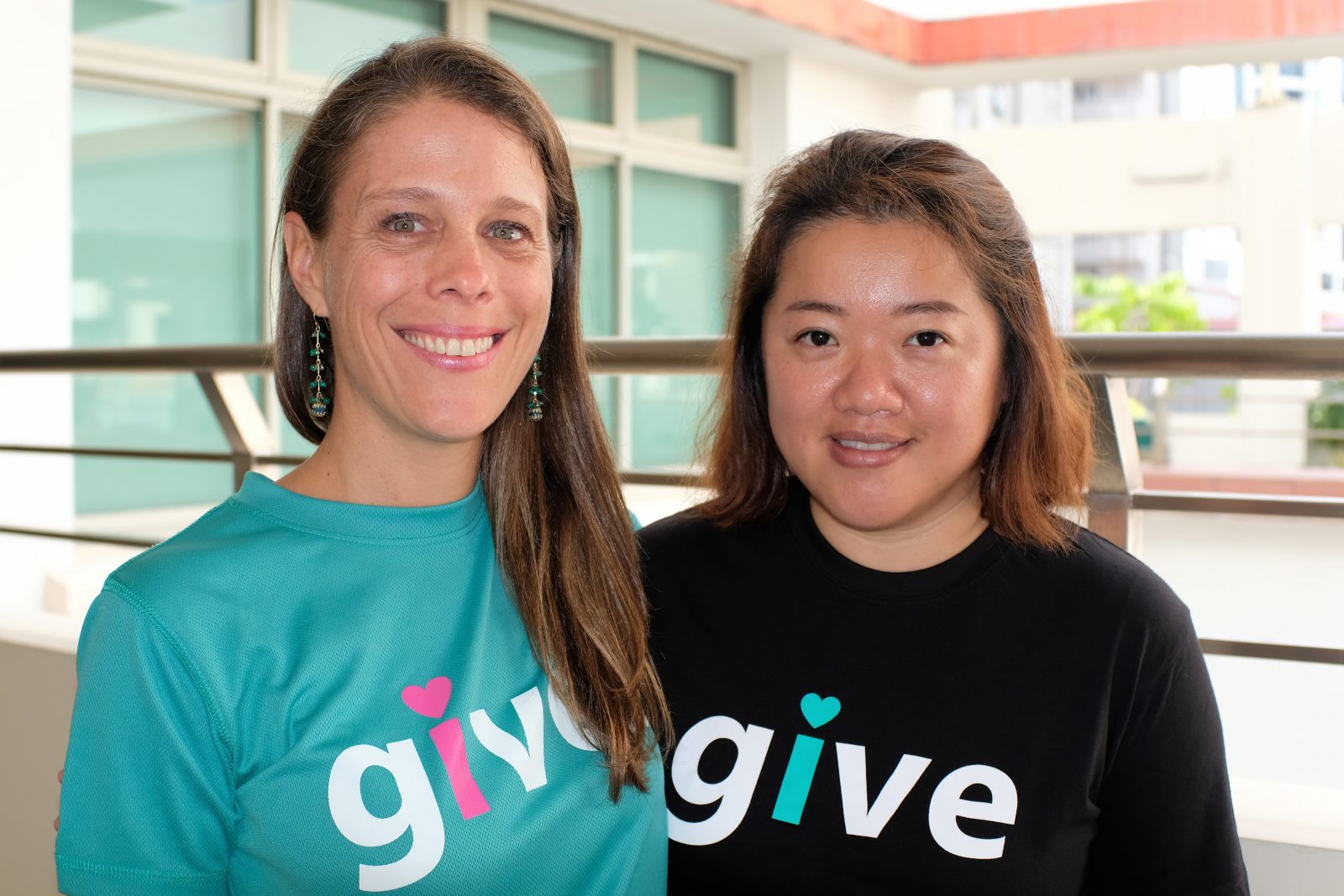
Her colleague, Asia Portfolio Planning Manager Signe Reiser, adds: “Using my professional skills to help others has been a meaningful and fun way to contribute to the community. I feel that by leveraging each of our unique abilities and personal passions, we can truly make a difference and deliver long-term impact to those in need.”
Karen Bergin, who leads Employee Engagement for Microsoft Philanthropies globally, hails this sort of skills-based volunteering as an impactful way of building capacity at nonprofits.
“Deploying a group of volunteers to help a nonprofit adopt technology solutions is a phenomenal way for us to add value to society,” she says. “Our employees are effectively helping these important organizations to achieve their missions faster. Microsoft employees have much to offer nonprofits, most of whom could never afford to pay for people with their skills or experience.”
Donating and volunteering have long been a part of working life at Microsoft, where employees are allotted “volunteering leave days” and other incentives to help out as part of their benefits packages.
“We have grown up with a giving culture. It’s in our DNA. Many employees have joined Microsoft and have chosen to stay partly because of the opportunities to help others. They have told us it is personally important to them.”
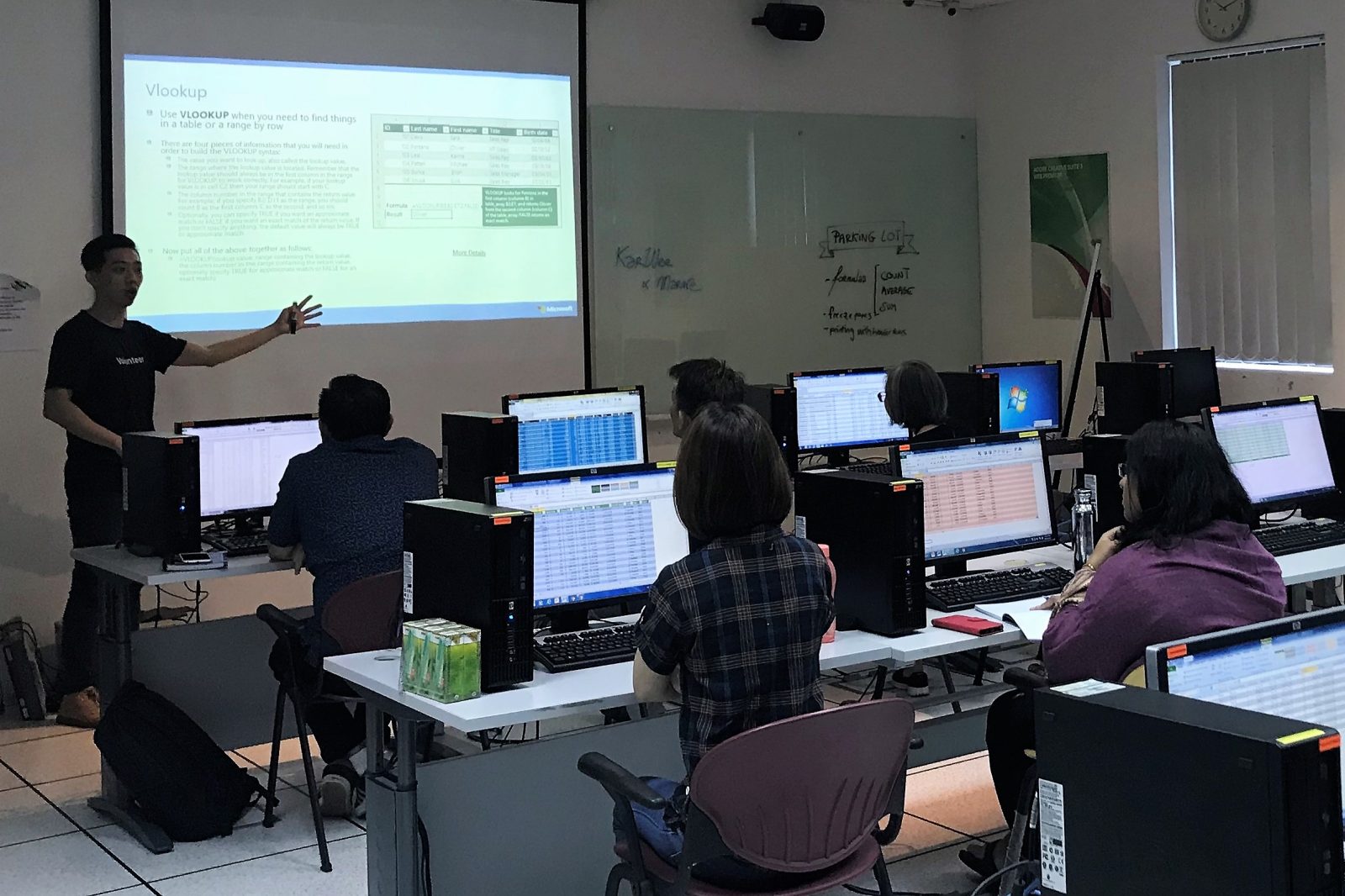
An internal employee poll last year found that around 90 percent of Microsoft’s workforce felt better about the company because of its philanthropy efforts.
“Lots of employees are looking for companies with values like theirs. What we have heard directly from some of our younger hires is that they expect their organization to make a difference. They expect companies to take a stand on tough societal issues. Microsoft has done so for many years.
“Employees also appreciate being able to support causes that are close to their hearts. That flexibility in a giving program can be a gamechanger when it comes to employee attraction and retention.”
Karen points to other upsides from working with nonprofits. “Our employees learn more about challenges faced in the outside world by nonprofits and the people they serve. These learnings are brought back to Microsoft for us to learn too. It’s an effective example of customer obsession, ” she says.
“Volunteer opportunities enable employees to work alongside colleagues from different departments. This encourages a growth mindset and fosters a collaborative spirit which is core to our cultural transformation.”
Above slideshow: Click on the left or right arrows to view Giving Month highlights from countries across Asia Pacific.
During the Giving month of October, Microsoft employees offered their time and worked on a wide range of projects, programs, and events across Asia Pacific. Some took part in skills-based volunteering, while others rolled up their sleeves in more traditional ways.
-
-
In Vietnam, our volunteers traveled with some non-government organizations to rural communities made up of ethnic minorities. They distributed food and other goods and talked about educational needs. See the main image at the top of the page: Nhi Le, Microsoft Philanthropies Lead for Southeast Asia (left) and Pham Thi Hoai Thu, a volunteer from nonprofit, Vietnet ICT.
-
In Hong Kong, they staged a technology and event management workshop for high school students who are preparing to hold a carnival for senior citizens. They also supported the Hong Kong Blind Union at a fund-raising event by using Microsoft’s Seeing AI app in a novelty obstacle course contest. And, they hosted a coding workshop for school kids.
-
In the Philippines, they partnered with the nonprofit Gawad Kalinga organization to build housing for people with disabilities in Laguerta GK Village, Brgy. Tunasan, Muntinlupa City. Over 30 Microsoft employees moved wheel barrows full of concrete and lifted heavy concrete blocks through what was a very hot day. The hard work gave them firsthand experience of the great work done by Gawad Kalinga.
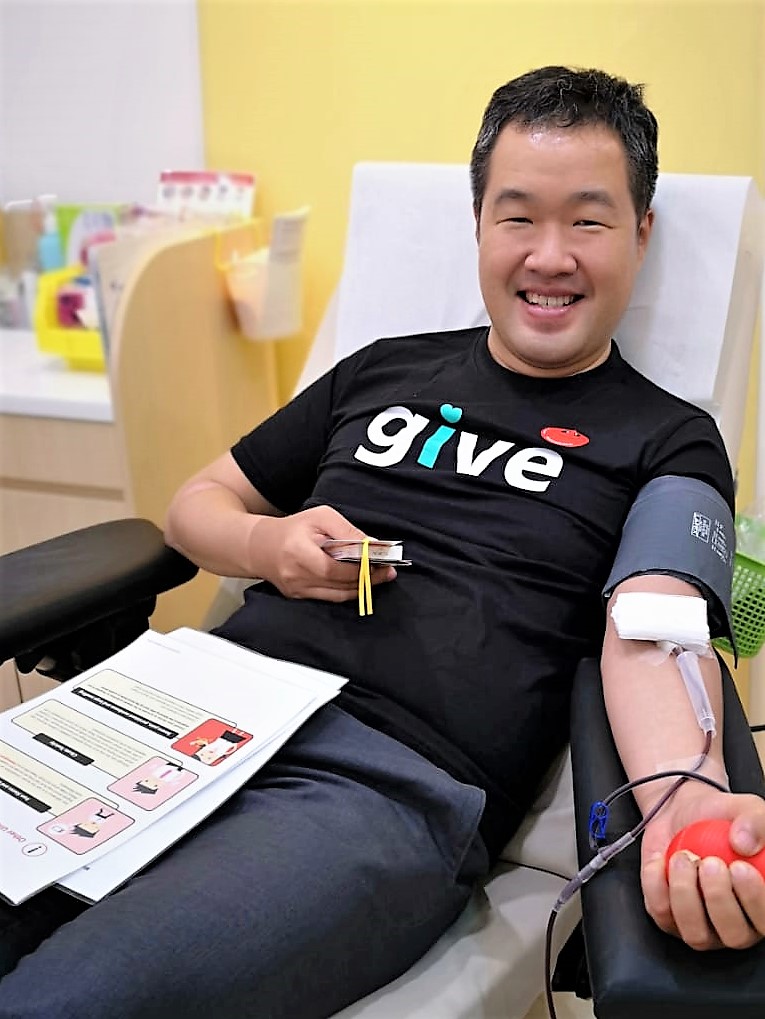
Technology Solution professional Frank Yang gives blood in Singapore. -
In Singapore, they worked with a range of organizations in environmental advocacy, accessibility, humanitarian response, and education.They helped build capacity among nonprofits staff by teaching them how to use cloud technology. They helped to clean up local beaches and waterways. Others donated blood and helped deliver food to the elderly. Some played sports with local athletes from the Special Olympics. Others helped out at Dignity Kitchen, which provides jobs and training for people with disabilities. Some volunteers supported the work of disaster relief groups in neighboring Indonesia.
-
In Sri Lanka, Microsoft volunteers spent a day with 16 girls from a Colombo orphanage. They hired double-decker bus, took them to a movie, and taught them some coding – three things most of the children had never done before.
-
In India, employees raised money through a charity auction. About 460 also put together literacy kits of books and stationary and distributed them to underserved children in Delhi, Mumbai, and Bengaluru. They also held a traditional Garba dance night and opened a flea market to support several non-government organizations.
-
In Japan, about 15 employees mentored 24 students working on social innovation projects, ranging from refugee support, education for children in difficult circumstances, and community disaster reconstruction. Others fundraised for nonprofit organizations, supported a booth that promoted accessibility at an international home care and rehabilitation exhibition, and took part in digital skills training for students.
-
In Thailand, employees supported a local AI for Earth initiative that promotes environmental work. They contributed findings to iNaturalist’s application that helps users to learn and observe plants and wildlife.
-
In Malaysia, volunteers team ran a DigiGirlz event to inspire young women to dream big and study STEM (science, technology, engineering, and mathematics) subjects. They also raised money and collected supplies to be sent to Central Sulawesi in Indonesia, which was recently devastated by an earthquake and tsunami.
-
The Sulawesi disaster was also the focus for Microsoft Indonesia’s employees who spent October contributing to the local chapters of Red Cross and World Vision. They are also leveraging Microsoft technology to help humanitarian nonprofits provide relief.
-
In China, employees donated online and took part in events in Beijing, Shanghai, Suzhou, and Shenzhen in support of nonprofit partners such as Rice Donate, Fu Ping Foundation, and the Migrant Workers’ Home.
-
In South Korea, employees regularly raise funds for programs, such as one that provides motorized wheelchairs for children with disabilities. In October, they also helped build housing for disadvantaged older people and made regular visits to a community center for young people with disabilities. Others have been mentoring about 30 young women who want to build careers in based on STEM.
-
In Australia, Microsoft launched a Give portal to help employees decide how best to volunteer, donate, or fundraise for causes. These included skills-based volunteering with indigenous women on technology projects, toy and books packing for The Smith Family charity, running Online Safety workshops for parents and teachers through the ThinkUKnow program, mentoring disadvantaged students, and hosting Hour of Code workshops for school students.
-
In Taiwan, 63 employees are contributing in an ongoing way. They are using Skype for mentoring more than 90 students in programs held in Taiwan, China, and the United States.
-






